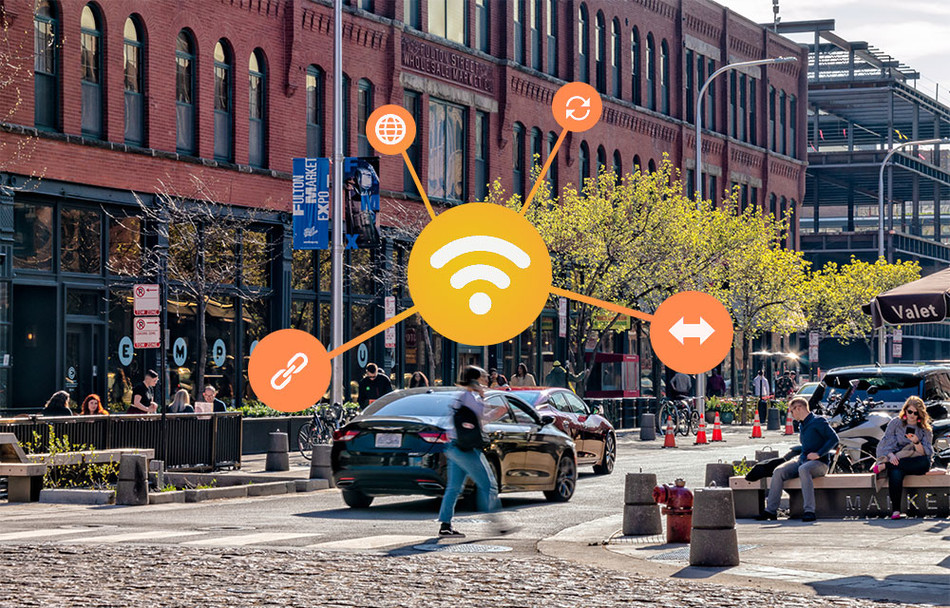Columbia Engineering Leads Major Initiative on Smart Streetscapes
The National Science Foundation has awarded a $26 million, five-year grant to a team led by Columbia Engineering, together with academic partners at Florida Atlantic University, Rutgers University, the University of Central Florida, and Lehman College, to develop a new Gen-4 NSF Engineering Research Center for Smart Streetscapes (CS3).
The initiative, which involves collaborations with dozens of industry partners, community organizations, municipalities, and K–12 schools, will harness advances in wireless communications and remote-sensing technologies to plan more livable, safe, and inclusive urban environments.
The center’s organizers say that its research could lead to more effective ways of managing automobile and pedestrian traffic, emergency-response services, waste removal, and pest control. Innovations will be piloted in three cities — New York, West Palm Beach, and New Brunswick, New Jersey — with an eye toward identifying novel technologies that might be deployed more widely.
At Columbia, the engineering school’s key partners on the initiative include the Data Science Institute, the Faculty of Arts and Sciences, the School of International and Public Affairs, and Columbia Technology Ventures. Andrew Smyth, the Robert A. W. and Christine S. Carleton Professor of Civil Engineering and Engineering Mechanics, is the center’s principal investigator.
“By helping cities better meet the needs of local communities, this project exemplifies what I call the Fourth Purpose of the University — a vision that embraces the capacity of educational institutions to advance human welfare through academic work and with outside partners,” says President Lee C. Bollinger.
“Our partnership provides an unprecedented opportunity to pool the strengths of our institutions, embedded in cities that can serve as models for other urban areas around the world,” adds Provost Mary C. Boyce.



